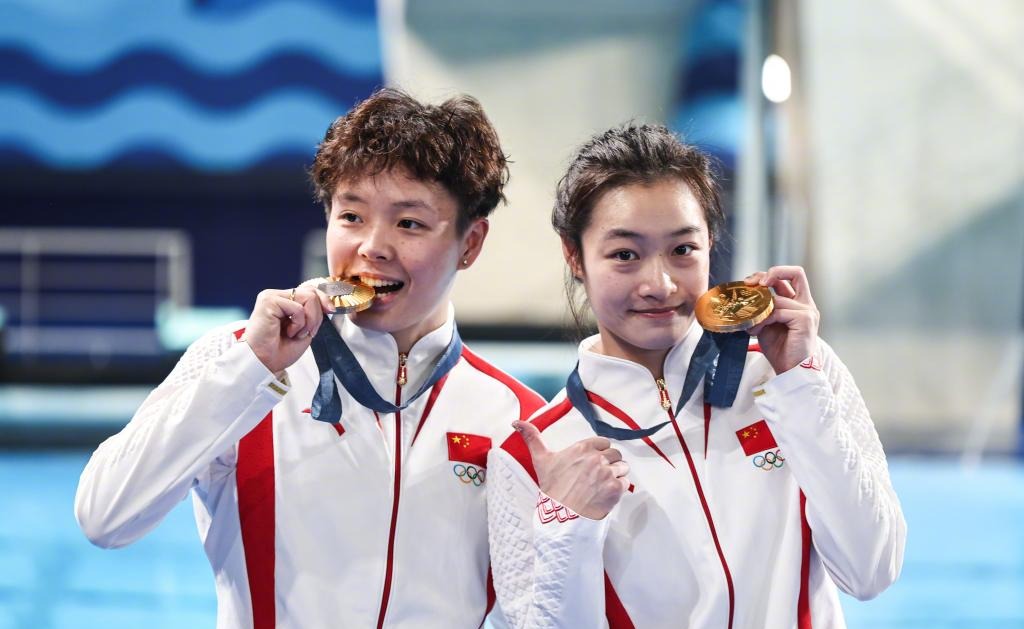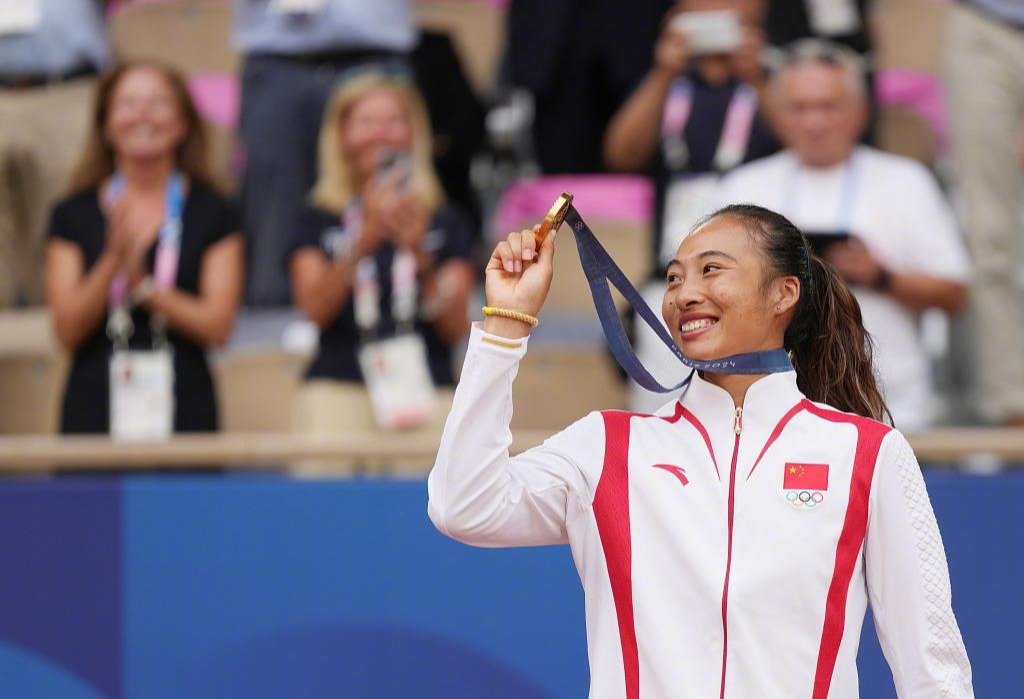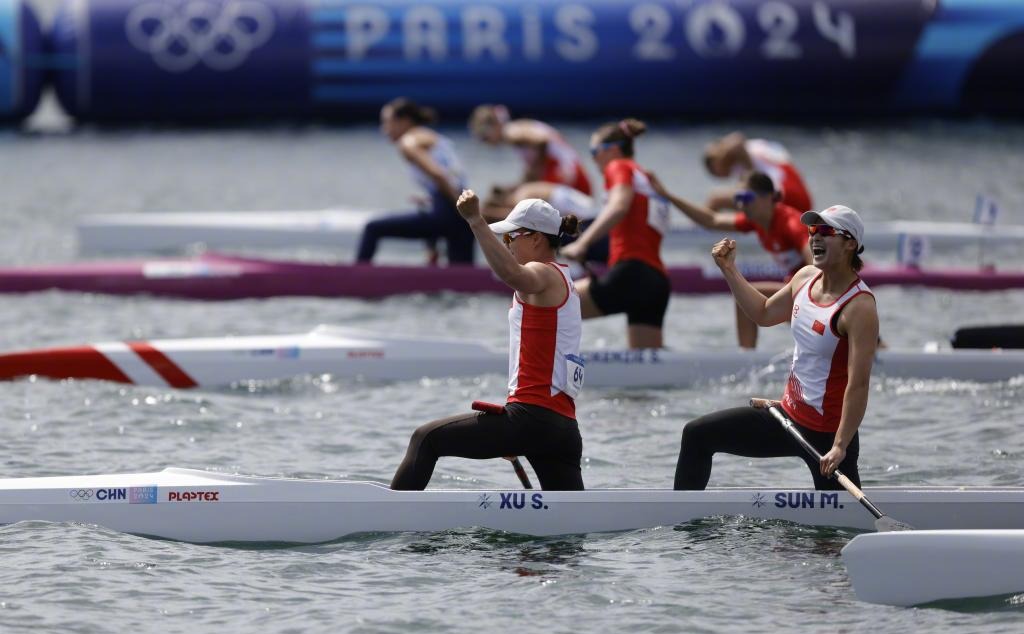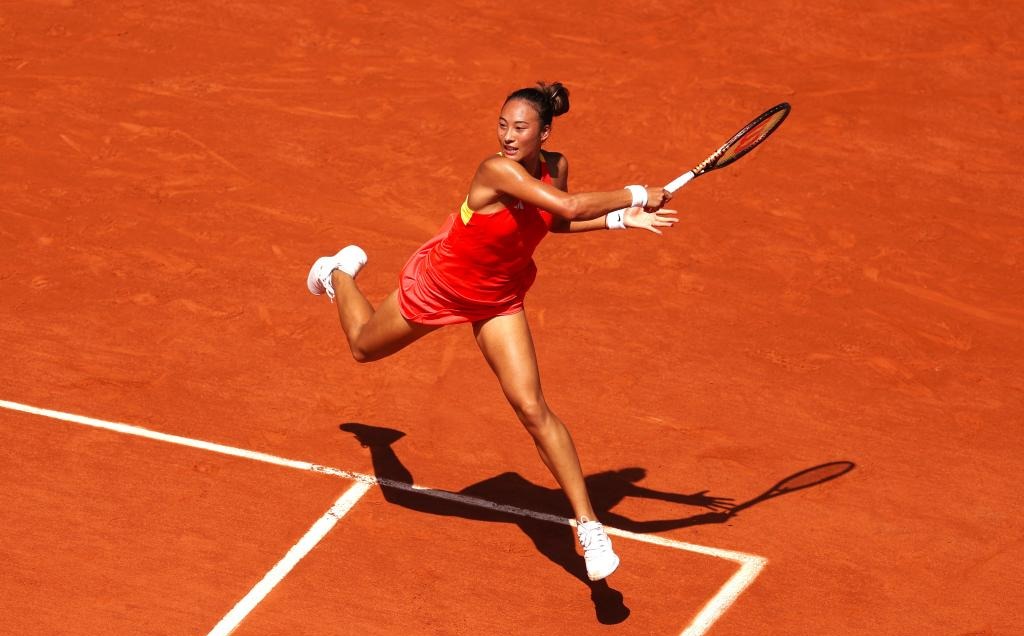Huazhong University of Science and Technology prepares its students for elite competition through personalised training programmes and a comprehensive curriculum that teaches all aspects of sport. Three golds at the 2024 Paris Olympics testify that the university is on the right track

Source: Weibo/CCTV Sports Channel
By the time Tom Cruise abseiled from the roof of the Stade de France at the closing ceremony of the 2024 Paris Olympics, China’s athletes had secured 91 podium finishes, winning 40 gold, 27 silver and 24 bronze medals. Four of those medals were won by students from Huazhong University of Science and Technology (HUST) in Wuhan, which has a formidable reputation for developing athletic talent.
Mengya Sun won gold in the women’s canoe double 500m. Qinwen Zheng became the first Asian tennis player to win gold in singles after defeating the Croatian Donna Vekić in straight sets. Yani Chang took home gold in the women’s synchronised 3m springboard diving, before winning bronze in women’s 3m springboard diving.

Source: Weibo/Xinhua News Agency
Zheng says support from her institution allowed her to follow in the footsteps of Chinese tennis legend and fellow HUST alumnus Na Li. “The university provided me with tremendous care and support,” Zheng said. “In managing my studies alongside my training, HUST arranged a reasonable course schedule that allowed me to concentrate fully on my preparation, enabling me to give my all without being distracted by academic demands.”
HUST has developed a number of Olympic gold medallists. HUST’s sports curriculum is dedicated to sporting excellence. It follows a “one plan for one student” strategy, developing individualised training programmes to prepare students for competition while keeping their studies on track. Hongtao Zeng, assistant dean of the School of Physical Education at HUST, says training and education must go hand in hand.
At HUST, students’ academic schedules are personalised to give priority to training and competitions. This flexible approach ensures that students receive an education that complements their sports career. “We implemented a flexible academic system and credit policy based on the individual training cycles and characteristics of each athlete,” Zeng says. Athletes also have the opportunity to extend their courses or attend online classes based on their training or competition schedules.

Source: Weibo/Xinhua News Agency
“Our athletes who are majoring in sports training undertake a series of foundational courses such as exercise physiology, sports anatomy, sports training theory and biomechanics,” Zeng says. “These technical courses are interlinked, allowing them to understand the fundamental principles and basics of sports. This theoretical foundation enhances their comprehension of training plans and strategies provided by their coaches, enabling them to grasp these plans at a deeper level.”
An understanding of the science underpinning performance empowers students to take ownership of their training programmes and give coaches and physiotherapists the performance data feedback that is essential in supporting them. “This process exemplifies how integrating classroom-based theoretical knowledge into practical training helps improve the scientific, practical and overall effectiveness of their training,” says Zeng.

Source: Weibo/Zheng Qingwen Ana
HUST also recognises the harsh reality of elite competition: not all athletes will go to the Olympics and all athletes will ultimately retire from competition. Zeng believes HUST’s panoply of sports-related courses – such as sports science research, sports economics and management – will prepare students for a career once they retire from competitive sports. “In the future, they may transition into roles such as coaches, race managers or other positions within the broader sports industry,” he says. “By acquiring knowledge across these different domains, athletes gain a more holistic perspective on sports, enabling them to better plan for their careers after retiring from competition.”
Source: Times Higher Education, Find out more
